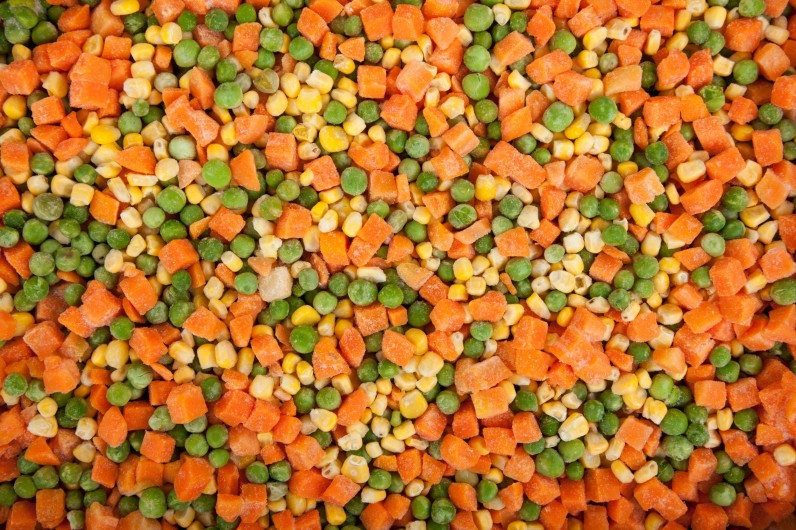
The Food and Drug Administration (FDA) has expanded a recall of frozen vegetables nationwide after a salmonella outbreak sickened 11 people across 10 states. Four of those infected have been hospitalized.
The recall began on July 16 when the Chetak LLC Group pulled multiple lots of frozen sprouted beans linked to the outbreak.
Since then, the recall has grown twice: on August 22 to include mixed frozen vegetable products, and again on September 8 to cover a wide range of Deep-brand frozen fruits and vegetables, USA Today reported.
These products were sold across the country in stores and through mail orders. The FDA and Centers for Disease Control and Prevention (CDC) continue to investigate the outbreak and the source of the contamination.
Initially, only frozen sprouted mung beans and moth beans were recalled, with several lot codes affected.
But as the investigation progressed, the recall expanded to include more than 60 Deep-brand items.
These now include frozen carrots, peas, garlic, mixed vegetables, and various fruit and vegetable mixes.
A recent FDA test found salmonella in a frozen water chestnut product from the Deep brand, which was refused entry into the U.S. This discovery prompted further recall expansions.
Salmonella cases have appeared in Connecticut, Florida, Illinois, Massachusetts, Minnesota, New Jersey, Pennsylvania, Tennessee, Virginia, and Washington. Illnesses began after people consumed contaminated frozen vegetables.
Salmonella Outbreak: 16 people sick in 10 states, 7 hospitalized. If you order Metabolic Meals, check your fridges and freezers for the affected products and do not eat them.
— FoodSafety.gov (@foodsafetygov) September 9, 2025
See the notice for the list of products: https://t.co/nhpMGTjHu5 pic.twitter.com/a70A5hyUu2
FDA Urges Americans to Toss Recalled Frozen Foods Immediately
If you have any of the recalled Deep-brand frozen foods at home, the FDA says you should either throw them out right away or bring them back to the store for a refund.
Be sure to clean and sanitize any surfaces, dishes, or containers that may have come in contact with the food using hot, soapy water.
If you or someone you know starts to feel sick after eating these products, it's important to contact a doctor as soon as possible.
Salmonella symptoms usually show up within 6 hours to 6 days after eating contaminated food.
According to FoodSafetyNews, the most common ones are diarrhea, stomach cramps, and fever. For most healthy people, the illness clears up within about a week.
However, young kids, older adults, pregnant women, and people with weakened immune systems are at higher risk of getting seriously ill. Severe symptoms can include high fever, bloody or ongoing diarrhea, vomiting, and dehydration.
If you notice any of these more serious signs, the CDC advises seeking medical care right away.
Food with salmonella doesn't look or taste bad, so it can be hard to know if it's unsafe. This recall is critical to prevent more illnesses, especially since the frozen vegetables affected are sold nationwide.
"This expanded recall helps protect families and consumers from a serious health risk," said an FDA spokesperson. "Please check your freezer and stay safe."







Join the Conversation